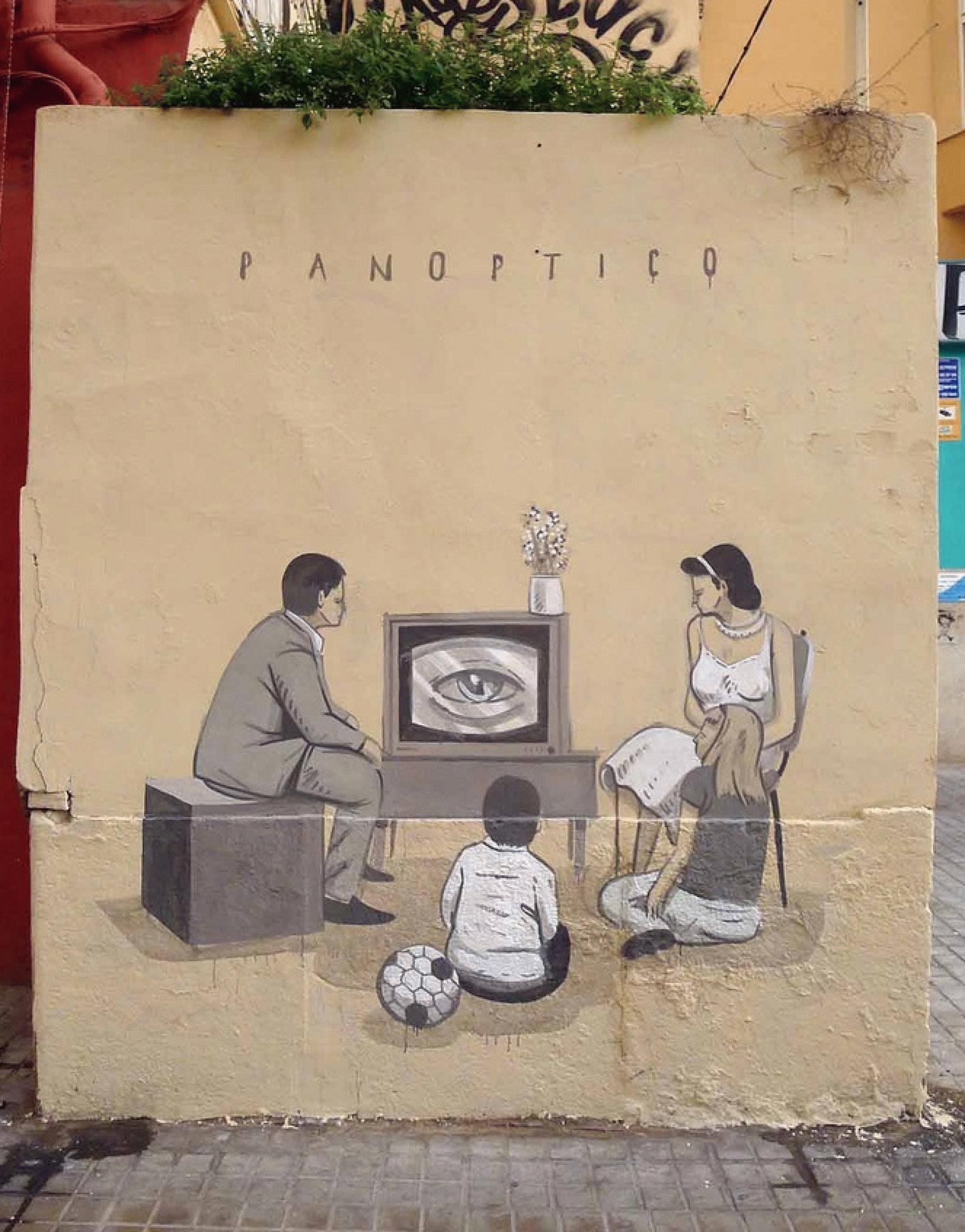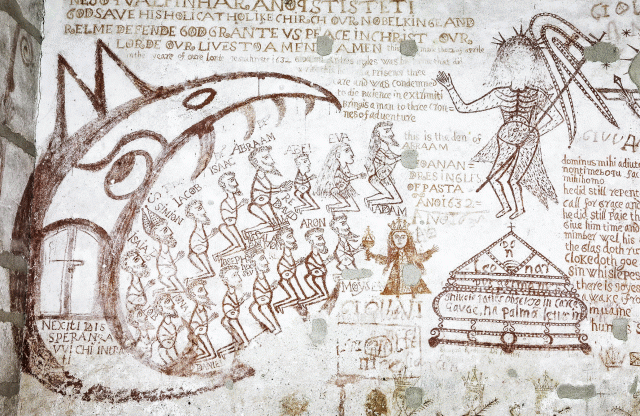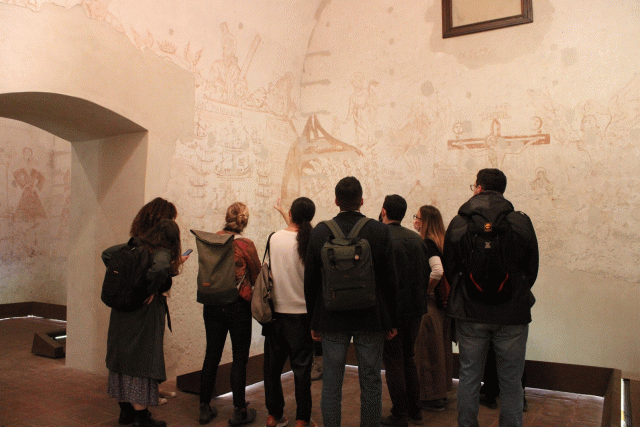Workshop
GAP Project – Graffiti Art in Prison
Marking Space: The Wall as Heterotopic Place
Third Intensive Study Week organized by Gabriella Cianciolo Cosentino (Universität zu Köln), Christine Kleiter (Kunsthistorisches Institut in Florenz – Max-Planck-Institut) and Federica Testa (Kunsthistorisches Institut in Florenz – Max-Planck-Institut)
This week deals with carceral spaces (prisons, panopticons and beyond) and partition walls as heterotopias, places “outside all places and yet locatable”. After tracing a theoretical and methodological frame, the focus is put on penitentiary architecture, a space designed to control the body and the mind, and on art as a way to transform and transcend this environment. The wall can isolate, separate, exclude and oppress. However, when painted, engraved and appropriated through the graphic sign, it can become the exact opposite, the instrument of communication, the element that connects. The chosen chronological arch and geographical context are deliberately broad and include case studies from antiquity, the Middle Ages and the early modern period as well as contemporary graffiti and street art.
Program
This event will take place in a hybrid format. To participate online please register in advance via Zoom: https://uni-koeln.zoom.us/meeting/register/tJEtf-msqjwoH9J6I2Ud4E0MF7M2XAbDSfTM
Speakers marked with an asterisk ( * ) will take part from remote.
Monday 18th July – Theoretical and Methodological Frame
Morning session (Universität zu Köln, Seminargebäude 106, Room S23 / online)
9.30 Institutional Greetings
Susanne Wittekind (Universität zu Köln)
Gerhard Wolf * (Kunsthistorisches Institut in Florenz – Max-Planck-Institut)
Gabriella Cianciolo Cosentino (Universität zu Köln), Introduction
10.15 Ilaria Hoppe (Katholische Privat-Universität Linz), Graffiti and the Discourse of Resilience
11.00 Coffee Break
11.30 Martin Langner (Georg-August-Universität Göttingen), Gladiators and Demons. Ancient Graffiti as Expressions of Popular Culture
12.15 Laura Barreca (Università degli Studi di Palermo), Anti-monuments. Art in Public Space
Evening lecture (Universität zu Köln, Seminargebäude 106, Room S23 / online)
18.30 David Freedberg * (Columbia University), Crime, Punishment and Torture: The First Mediatic Interventions
Tuesday 19th July – Carceral Space and Penitentiary Architecture
Morning session (Universität zu Köln, Seminargebäude 106, Room S23 / online)
9.30 Ravinder Binning (Ohio State University), Toward a Deeper History of Panoptic Architecture
10.15 Mirco Vannoni (Università degli Studi di Palermo), Space, Power, Representation. Panoptic Architecture and Asylum Spaces
11.00 Coffee Break
11.30 Francesca Giofrè * (Università di Roma La Sapienza), The Italian Prison. A Methodology to Read and Plan Space for and with Users
12.15 Lola Kantor-Kazovsky * (Hebrew University of Jerusalem), The Invenzioni Capric di Carceri by G.B. Piranesi: Architecture and Imagination
Afternoon session (EL-DE Haus, Appellhofplatz 23-25)
15.00 Ascensión Hernández Martínez (Universidad de Zaragoza), The Management of Difficult Heritage. A Challenge for the 21st Century
16.00 Visit of EL-DE Haus, NS-Documentation Center of the City of Cologne
Wednesday 20th July – Urban Space and Mural Art
Morning session (Universität zu Köln, Seminargebäude 106, Room S23 / online)
9.30 Karl Hughes (Technische Universität München), Signature Event Codex
10.15 Maddalena Spagnolo * (Università degli Studi di Napoli Federico II), From Ephemeral to Permanent. Writing and Drawing in the Public Space in Early Modern Time
11.00 Coffee Break
11.30 Sven Niemann (Universität Paderborn), INGRID – Archiving Graffiti in Germany
12.15 GAP Students, round table
Afternoon session (Eigelstein 10)
15.00 Street art tour in Eigelstein guided by Sascha Klein (artrmx e.V.)
Tursday 21st July – Liminal Space and Walls
Morning session (Universität zu Köln, Seminargebäude 106, Room S23 / online)
9.30 Avinoam Shalem (Columbia University), Graffiti on Living Walls. Writing on Trees and Cactuses
10.15 Ulrich Blanché (Ruprecht-Karls-Universität Heidelberg), Which Wall? About the Motivations to do Paintings on the Berlin Wall and Their Spectators
11.00 Coffee break
11.30 Pilar Biel (Universidad de Zaragoza), Public Space and Urban Art. The Wall as a Place of Conflict
12.15 Hana Gründler (Kunsthistorisches Institut in Florenz – Max-Planck-Institut), Memories of (Urban) Landscape, Fantasies of Freedom. Vladimír Boudník and the Walls of Prague
Afternoon session (Kolumba, Kolumbastraße 4)
17.15 Visit of Kolumba Art Museum guided by Johannes Stahl (suggested activity)
Evening session (Universität zu Köln, Seminargebäude 106, Room S23)
20.00 Film screening Harald Naegeli – Der Sprayer von Zürich, a documentary by Nathalie David
Friday 22nd July – Imaginary Space and Freedom
Morning session (S-Bahn Bahnhof Ehrenfeld, exit Bartholomäus-Schink-Straße)
10.00 Tour in Ehrenfeld guided by Johannes Stahl and the students of the Universität zu Köln
Afternoon session (Universität zu Köln, Seminargebäude 106, Room S23 / online)
14.30 David Mesguich (artist), Fence Stories
15.15 Johannes Stahl (Ruhr-Universität Bochum), Cards from Cologne
16.00 GAP Students, round table & concluding remarks
Contact
Gabriella Cianciolo Cosentino (Scientific Coordinator GAP): gciancio@uni-koeln.de
Downloads
18 – 22 July 2022
This event will take place in a hybrid format.
Venue
Universität zu Köln
Seminargebäude 106
Universitätsstraße 37
50931 Cologne, Germany
To participate online please register in advance via Zoom: https://uni-koeln.zoom.us/meeting/register/tJEtf-msqjwoH9J6I2Ud4E0MF7M2XAbDSfTM
After registering, you will receive a confirmation email containing information about joining the meeting.
Notice
This event will be documented photographically and/or recorded on video. Please let us know if you do not agree with the Kunsthistorisches Institut in Florenz using images in which you might be recognizable for event documentation and public relation purposes (e.g. social media).






